Landscape of loneliness
Urban loneliness is staring us deeper in the eye with every passing day.
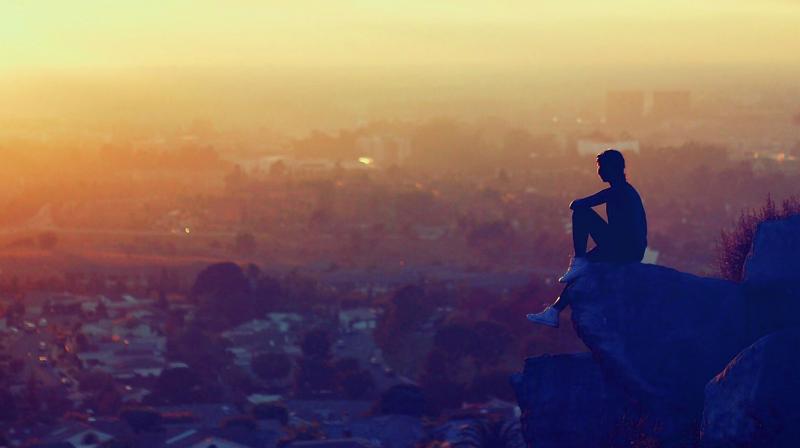
In bright, sparkling cities where people race through packed days and live seemingly picture-perfect lives, a giant silent killer is claiming more victims than ever before — urban loneliness
Peter has a great job that’s the envy of many, a loving family with parents and a sibling, a large set of friends — some distant, some close. To the outside world, Peter (name changed) seems to have it all. A wholesome, happy life. But in rare candid moments when he opens up and bares his heart, Peter admits that he feels a void inside and is unhappy. “I am lonely, despite all this. There is no one who truly understands what I feel. I am unable to find any human connection that truly resonates with my soul.” And it’s not quite the lack of a life-partner that is causing this loneliness. “Maybe a life-partner will care for me like no other and maybe for some time I’ll forget this pain but it runs deeper than that I feel,” says the 29-year-old.
Peter is one among many urban people who feel a void in their lives that nothing is able to fill. Is he depressed? “No, I am not. I am just lonely and that makes me sad,” he says. Loneliness comes in many forms in our concrete jungles and while Peter feels alone in the crowd, there are others who can’t find their perfect crowd itself. Urban loneliness is staring us deeper in the eye with every passing day. And there is no denying it any more. Everyone is expected to be living an Insta-perfect ‘happy’ life, and anything short of that is not okay, forcing people to hide their true feelings and put up a great but false front. And it is not only from a point of being alone and depressed that urban loneliness is emerging. It is easy to club loneliness with depression, and many mistakenly confuse the two. Way back in 1980s, researchers John L. Michela, Letitia Anne Peplau and Martin E. Bragg established that the two are separate.
In their article titled ‘Relation between loneliness and depression: A structural equation analysis,’ published in Journal of Personality and Social Psychology, they wrote that while loneliness and depression can go hand in hand, it is possible for people to be lonely but not depressed, or depressed but not lonely or be neither of the two. While loneliness is a feeling of not being able to belong, which can lead to sadness; depression is an overall feeling of hopelessness and sadness. Loneliness is a feeling associated with our relationships with people while depression is a general sense of feeling about everything. Loneliness has many forms and many causes. We take a look at what is pushing urban-dwellers deeper and deeper into this state of being.
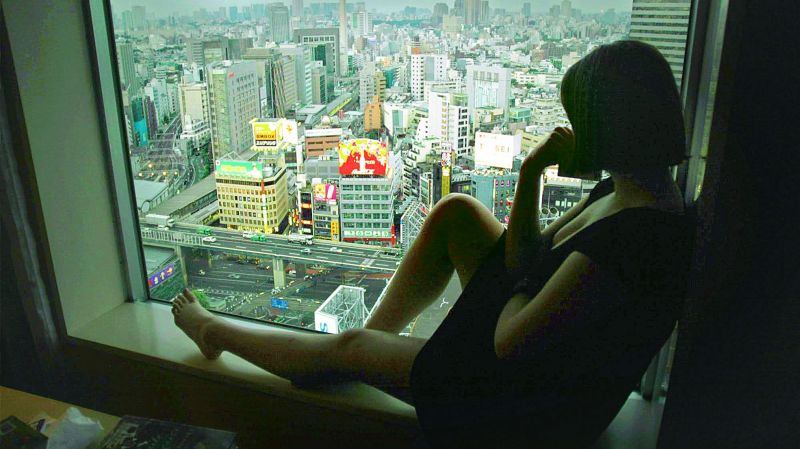
Emotional vacuum
A Delhi-based Bengali journalist, whose dak naam is Babui, lives alone in the city. “When I go back home it is just the lizard on the wall staring back at me. There is a limit to the number of evenings one can spend listening to music.”
Babui, who used to live with his mother in Pune, lost her in 2010. “I found that I don’t have anyone else. My world was all about my mother who was very sick. I used to look after her, go to work and come back. It is after her death that I realised that I have no life beyond her. I didn’t have any friends to talk to. Gradually, I started learning to spend time in my own company. But at the end of the day you need a human being, face to face — to converse, to share and exchange thoughts. Loneliness slowly took hold of me and pushed me to a point where I felt I should die. I wanted to commit suicide. I decided to shift to Delhi as the girl I wanted to marry lived here,” he recalls. But the girl didn’t accept his marriage proposal, and Babui has since not thought of getting married again. Babui tried to deal with his loneliness by indulging in his hobbies and searching for that occasional great conversation, which too is hard to come most often. On the other hand, there is Priya (name changed), a 30-year-old model who travels all across the country on work, has a string of lovers at her beck and call, and a social media presence that looks professionally worked upon. But just like Peter, she can’t find that sense of belonging. She feels emotionally adrift, empty. “I have chosen this glamorous life and there is no turning back for now. I guess I am paying the price. All these high-end brands, fancy parties and high society people are a part of my job. Deep down I am a very simple person and it’s not easy to reveal that, instead one needs to put up a different front. A constant feeling of loneliness has set in,” she says.

American celebrity chef and popular TV show host Anthony Bourdain, who seemed to have a perfect life with a dream job that was the envy of millions across the globe, committed suicide at the age of 61 this June.
A cold, hurting hunger
Olivia Laing, in her book, The Lonely City, describes loneliness as being a certain kind of hungry: “Like being hungry when everyone around you is readying for a feast. This leads to an immense feeling of shame and over time these feelings emanate outwards leading one to be isolated... alone… It hurts, in the way that feelings do, and it also has physical consequences that take place invisibly, inside the closed compartments of the body. It advances, is what I’m trying to say, cold as ice and clear as glass, enclosing and engulfing… Cities can be lonely places, and in admitting this we see that loneliness doesn’t necessarily require physical solitude, but rather an absence or paucity of connection, closeness, kinship: an inability, for one reason or another, to find as much intimacy as is desired.”
Stress & isolation
Most urbanites have their plate full of problems and pressures of various kinds, and an urban setting is quite capable of constantly tossing a handful more to the heap. So is the lack of social support systems leading to isolation? Are fast-paced lifestyles and professional anxieties further isolating us? Being alone doesn’t mean being lonely, says life coach Ravneet Gandhok. “Urban loneliness is steadily growing. In an urge to be ahead of others and to earn a better living, people are living alone, away from pals and family. It is true that man is a social being and to be happy needs to live in a society, but when that social engagement and bonhomie doesn’t happen, it leads to sadness and loneliness. In urban culture, nobody wants neighbours or others interfering, and this isolated living slowly leads to depression, sadness and other psychological disorders. The only way to get rid of this loneliness is to make friends, meet people and enjoy life which now happens to extend only to Facebook and other social platforms,” she adds.
Social media & faking happiness
Social media has pushed us to the verge of faking happiness, often forcing us to hide our true selves from the world. Corporate consultant and mental health professional, Dr Niru Kumar says, “The fake exuberant ‘top of the world’ culture is taking a heavy toll on people of all ages, but mostly on the 20-45 age group. Your success, networking and opportunities seem to depend on how ‘picture perfect’ you paint your life to be.” “This leads to lack of authenticity and community support. Loneliness is bound to happen. There is enough research showing that community sharing and support leads to well being and ability to overcome big hurdles. The absence of this is a big reason for increasing number of cases of not only depression and anxiety but other physical conditions like hypertension, diabetes etc. In fact, it is almost like a fear of being found out. Found out that your relationship is not going well, or your child is having problems in school. Instead of getting support for it, one is guilty and has to expend so much energy to hide it,” she adds.
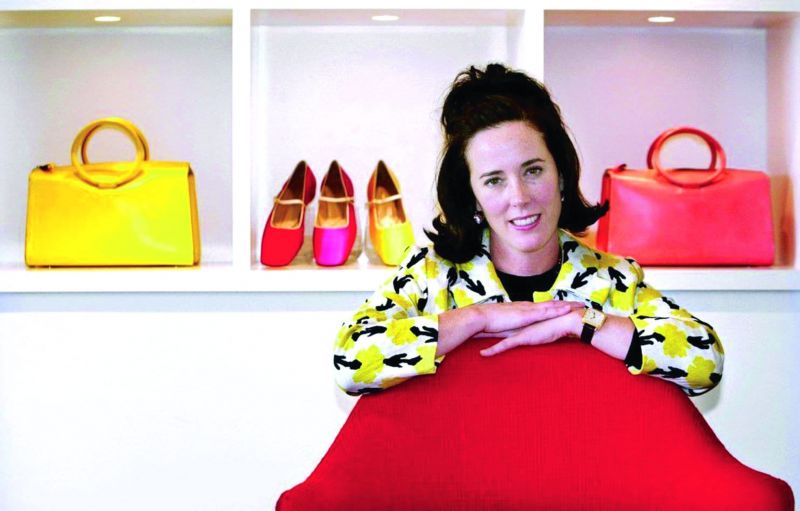
Fashion designer Kate Spade, who was known for her handbags and seemed to have it all, committed suicide in her Manhattan home this June.
Community spirit
Artist and author Bulbul Sharma who has lived both in the big city and a small hilly village, shares that in villages the community spirit is very strong and every person is treated like a member of one’s extended family. “This happens because people need to help each other during harvest season, and also during any crisis the entire village comes out to stand by your side. Life in the cities is about getting ahead, getting richer and racing with your neighbour to buy a bigger car/apartment/TV. There is no time to stop and smell the roses,” she says. Ask Babui if he would have been a happier guy if he were living in a rural or semi-urban town, and he says, “In any city if you don’t have a strong social circle, then you are a lonely man in a crowd. People around you who are with their families, laughing, eating and posting pictures can make you feel left out. But then again, that might also be half the truth.” Bulbul Sharma feels people who live in posh colonies with parks and gardens often have much less contact with their neighbours. She says, “The community spirit is much more alive in crowded colonies where families still share every little aspect of their life with their neighbours. Festivals are celebrated together since it works out cheaper that way and elderly people gather on the street to talk.”
Tech addiction
It is a common scenario to find a group of people sitting together, glued to their phones. While technology is evolving, are human beings too? Are we unable to strike a balance between our emotional engagement and tech absorption? “A major factor we find contributing to urban loneliness is the increasing use of technology in interaction. It cuts two ways. If one is a heavy user of smartphone, one is connected all the time — chatting with friends, sharing and reading stuff on WhatsApp, getting updated and updating others on Facebook etc. This does help people, especially the elderly who are less mobile and connected, and helps them overcome their loneliness to a certain degree. But if one is not technologically savvy, one can feel extremely isolated and cut off from friends, family and perhaps even the spouse who may be interacting and engaging with others on these platforms,” says Asheesh Gupta, who runs Samarth, an NGO for the elderly.

Stills from the film Amélie — a story of a shy waitress who decides to change the lives of those around her for the better, while struggling with her own isolation.
Shallow relationships
Some dating apps help one enjoy instant gratification, but at the same time lead to a kind of shallowness that does not allow something more meaningful and emotional to take root. How is this affecting our connections? Is it the sheer number of strangers around us that makes us feel not at home, always on a lookout for a relationship, with our guard up and hearts closed? Relationship expert Nisha JamvWal says, “I find dating apps seldom lead to a serious, real, rewarding relationship. I’ve seen single friends very disillusioned and unhappy with the results of these, because what is projected is often far from reality. Often I find those seeking a companion or partner view it more as a game than a real seeking of love, warmth, and fulfillment with longevity. I’m seeing more and more ‘seekers’ looking for lust, adrenalin rushes, non-committal sex and short-term excitement.”
Cross-generational phenomenon
It is not just the elderly or the millennials who find themselves in the grip of loneliness, even children are battling it. What is it about urban loneliness that is making all age groups fall prey to it? Asheesh Gupta says, “In our work with the urban elderly, we find that loneliness and the resulting emotional needs are as big, if not bigger, than the physical challenges of old age faced by them. A year ago, we did a major research with Indian elderly living in cities, and also Indians between 35 and 50 years of age in India and overseas who have parents living in India. We asked them what kind of support the elderly in India need. With data from nearly a thousand respondents, we were struck by the stark contrast in the response from these two groups.”
The children predominantly wanted physical support for their elderly parents: safety, security, healthcare, getting work done at home and outside, help in case of emergency etc. On the other hand, the older group overwhelmingly wanted emotional support: someone to talk to, people to meet and visit, and very importantly, to be able to do something that gives them a sense of self-worth. “This difference in priorities and thinking is a big reason for people feeling lonely even when they live together. Data shows that living together is also reducing due to socio-economic factors like increased job mobility and nuclearisation of families, more working couples and increased longevity of elderly,” he says. Bulbul Sharma adds, “Sometime ago I was doing an art workshop for children at an NDMC school and a few people from an old people’s home nearby dropped in to watch. They sat down to paint with me and did some really wonderful pieces. Many of them said they used to paint, sing, play the violin when they were young. They felt very isolated now and though they were looked after well at the old people’s home, they had no opportunities to engage in any creative work or meaningful tasks. ‘We are so lonely. We talk to each other and then we just stare at the walls. If only people from the neighbourhood would drop by and talk to us. It would be so wonderful to hear about other peoples’ lives even if we cannot be a part of it,’ one of them said. The need to connect with other humans is so vital but in our fast-paced city life, very few people can take the time out to help.”
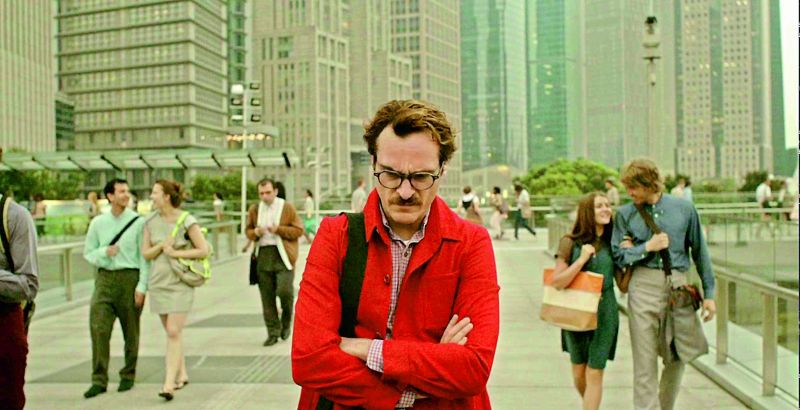
Her — a story of a lonely man who develops a relationship with an intelligent computer operating system personified through a female voice.
Urban design
Some researchers blame the urban design for creating a hostile environment that is pushing us towards loneliness. The warmth of human connection and neighbourly friendliness is gone. Can greener, cleaner and beautiful places help one’s soul feel more at ease and connect better? The Grattan Institute, a think-tank focused on public policy in Australia, stated in a report, “Cities can help social connection, or hinder it. They can be so poorly organised that they are hard to get around — a problem not just for getting to work, but also for seeing friends and family and participating in social activities.” Clinical psychologist and psychotherapist, Dr Mamta Shah feels loneliness doesn’t come from being alone but feeling alone.
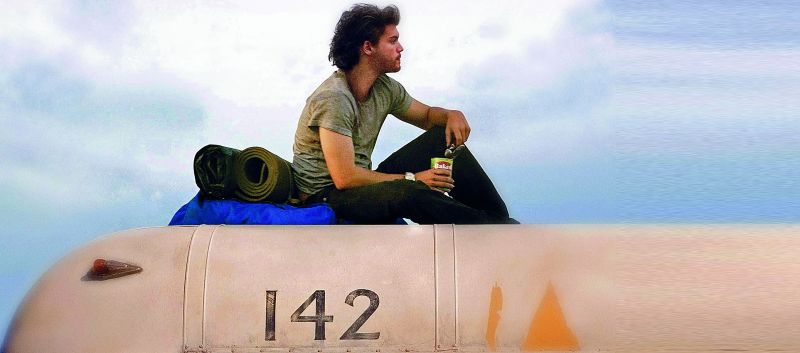
Into the Wild — a story of a young man who ceased communicating with his family, gave away his college fund and began traveling across the Western United States by himself.
She says, “This seems to be a growing challenge in urban life. Along with it comes depleting physical and emotional health. How can someone be lonely amidst thousands of people surrounding them in a metropolis? Alas, this is a hard fact. More and more people are feeling alone and depressed as a consequence of it in urban cities, and it affects people of all ages.” In an article (focusing primarily on the US) in Public Square: A CNU Journal, Steve Price wrote, “Coders, planners, and designers need to feel the urgency of social design in their bones as they shape places. Making interventions to improve walkability needs to be informed by these feelings. Many a street has been buffed up with decorative street lamps and banners, trees, bike racks, street furniture, landscaping, and the like, yet remains socially dead.” Dr Shah feels the primary key to overcoming loneliness is making friends. She says, “As simple as it sounds, unfortunately it isn’t. It’s the nature of friendship that is of utmost importance, meaningful versus superficial and superficiality drains people. One needs quality relationships over quantity. Seeking professional help like therapy can help alleviate the stress and anxieties that comes with it.”
Some silver linings...
While the age of technology has many of us trapped to the screen, this very screen can also turn our lives around into something that feels more wholesome. From online gift exchange programs, to NGOs working toward helping people connect across generations, to dating apps focused on emotional needs of people, there are a number of initiatives that are helping turn the tables. Urban loneliness can be tackled with a shift in perspective and some changes in the way we use contemporary resources. Software developer Ranchit Das has been using reddit since he was a teenager. “It used to be a space for nerds who mostly didn’t have great social skills and could only connect with people from behind the screen. It has changed vastly since then. Of course, part of it has to do with the fact that internet is now readily available to more and more people each day.
Redditgifts started in 2009 and people have been very kind to each other. They share gifts and have developed friendships. It is a great way to feel connected and reassured that we are not alone,” he smiles. The website boasts of 89,421 people who participated in Secret Santa 2013 from across 160 countries. Dating too has got a fillip from technology, shares Priya, “I hate Tinder and Happn. They feel so soul-less. But OK Cupid is different. On some days, it is a conversation with a stranger on OKC that has saved me. One can find wonderful people who are going through what you are going through. I won’t blame all of technology for isolating us, I have experienced my share of niceness here as well.”
Technology is also helping people connect over mutual interests and hobbies. For entrepreneur Stephen, who often travels to India from England for work, things were getting very lonely. “I found a group of board-game lovers on Facebook and we connected over Dragons&Dungeons (D&D) and I felt much better. I even made friends here in India,” he shares. So with new ways of coping with loneliness, there’s many a silver lining to that dark grim cloud.

